One of the most common questions pet owners face is if they should be using..
One of the most common questions pet owners face is if they should be using supplementation for their puppy, adult, or senior dogs. There are many dog supplements available on the market right now, so it’s important to know which marketing claims truly have evidence-based science to back up their claims.
Regulation is still on the horizon when it comes to dog supplementation, but despite this it’s currently a billion-dollar market. The sheer variety of supplements is enough to confuse any pet owner.
However, you should know that many of the active ingredients in dog supplements also overlap with health and nutrition needs for humans. So the evidence for the most popular dog supplements is pretty strong right now.

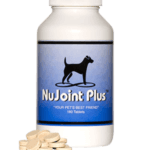
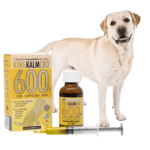

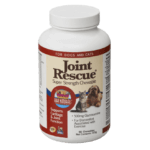
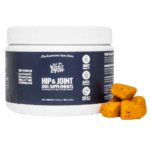
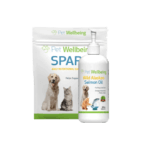
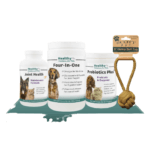
There are quite a few dog supplements out there, aimed at specific ailments such as arthritis, inflammation, immune health, brain function, and vision and eyesight due to age. Now, there is some evidence and ongoing clinical trials for dog supplements, but you should know that any claims about curing cancer, parvo, or other serious diseases are probably untrue.
The four most common types of dog supplements include:
Usually coupled with chondroitin, glucosamine is believed to be an effective supplement for the onset of osteoarthritis. Rather than curative, it’s seen as something preventative, for both humans and animals.
There’s no doubt that the lipid layers of our cells need protection and support. Fish oil in humans is a crucial part of lowering the risk of cardiovascular disease. In dogs (and cats), fish oil is most helpful for maintaining thick and shiny coats. The fatty acids in fish oil help prevent and even soothe skin allergies.
Even if your dog has a balanced, healthy diet, supporting gut health is an effective way to keep your pet’s overall immunity up. There are quite a few studies, for example, which prove that maintaining the ecology of the GI tract in dogs can be a cure for idiopathic diarrhea.
There is a range of supplements that include antioxidants, including vitamin C or Coenzyme Q10. In both humans and dogs, antioxidants help fight off the effects of cancer-causing free radicals. They can also help convert food into energy more effectively.
All dogs need six essential nutrients to live a healthy lifestyle:






If your pet’s diet doesn’t include the right proportions of these six vital nutrients, you should consider supplementing them with what they’re missing. Now, keep in mind that balance is key. You can definitely go overboard with dog supplements.
For example, vitamin D in small doses has great health benefits, but too much can create toxicity. This could lead to kidney failure and death.
Take your cues with supplementation based on two factors:
Take a look at what they’re already consuming in their diet and the percentage of the daily recommended nutrition value. Also, be sure to keep your vet in the loop to monitor whether to increase, decrease, or stop supplementation.
Since every dog breed is unique, you may also need to supplement based on genetic predisposition. You can protect your pet’s well being by ensuring that your breeder is ethical and guarantees your pet’s early health checks and pedigree.